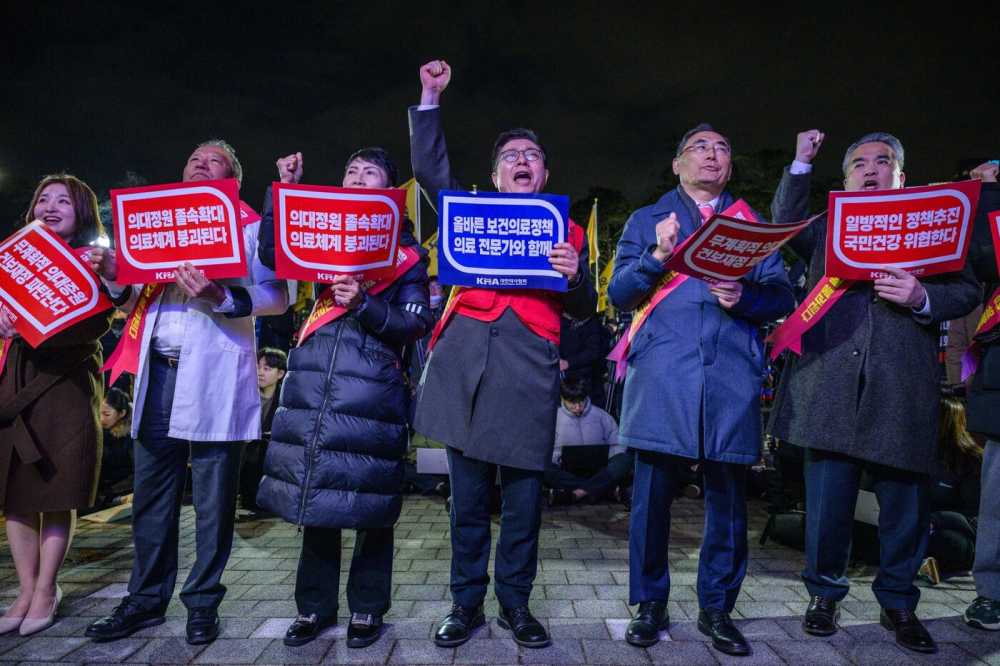In South Korea, over 1,600 physicians have laid down their tools, and more than 6,400 trainee doctors have tendered their resignations, shaking the foundations of the nation’s healthcare.
They’re standing against a government bid to swell the ranks of medical practitioners, a move that’s seen surgeries stalled and hospitals turning patients away.
The Heart of the Matter
Despite its economic prowess, South Korea grapples with one of the leanest doctor-to-patient ratios among leading economies. The government’s remedy? To boost medical school admissions. However, this prescription has not gone well with the current cadre of doctors, who foresee a future where heightened competition thins their earnings.
This isn’t just about paychecks. The country’s healthcare leans heavily on a privatised model, with most medical facilities owned privately and doctors’ salaries soaring above the national average. Yet, with only 2.5 doctors per 1,000 people, patient care is spread thin, particularly outside urban centres and in less remunerative specialties.
A Week of Woes
The protest saw nearly 6,500 interns and residents, crucial to emergency and routine care, stepping back from their duties. The government’s response has been stern. President Yoon Suk-yeol condemned the strike and authorities are threatening legal actions against non-compliant doctors.
“We are deeply disappointed in the situation where trainee doctors are refusing to work,” Second Vice Health Minister Park Min-soo had told reporters earlier this week. “We earnestly ask the doctors to withdraw their decision to resign en masse”.
The government has halted the licenses of two top Korea Medical Association figures. Their licenses also face cancellation if linked to sparking the strike. Additionally, police might arrest the strike’s leaders.
Yet, with the strike underway, the immediate fallout has been dire: delayed cancer surgeries, patients discharged prematurely, and a healthcare system under strain.
Beyond the Numbers
The government argues that increasing medical school slots by 65% will combat the looming doctor shortage, especially as South Korea’s population ages. Public opinion favours this expansion, with a recent poll showing strong support for the initiative.
Yet, the medical fraternity counters that adding numbers won’t solve the crisis. They argue for targeted solutions, especially for underserved areas and specialties. Moreover, they fear the financial implications of an increased workforce on the national health insurance scheme.
The Bigger Picture
This isn’t the first standoff between the government and doctors over medical education quotas. A similar proposal in 2020 was met with widespread protests, highlighting the delicate balance between healthcare policy and practitioner welfare.
Moving Forward
Meanwhile, as the strike continues, the government has pledged to enhance telehealth services and explore other emergency measures. Yet, the crux of the issue still needs to be addressed. How to ensure quality healthcare for all without diluting the standards and sustainability of the medical profession.
In a nation renowned for its medical prowess, the current crisis exposes the fault lines in a healthcare system at the crossroads of policy, practitioner satisfaction, and public need. As talks between the government and doctors’ associations continue, the hope is for a resolution that safeguards the future of healthcare in South Korea. Critically, they need to balance the need for more doctors with the realities of medical practice and patient care.
Photo credit: Anthony Wallace/AFP/Getty Images













